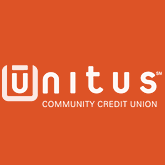The Call Center Supervisor
We’re doing a project with a credit union that is insourcing its call center function. We’re helping them crystalize the future-state vision, develop a robust implementation plan and ultimately bring the capability in-house. It’s an exciting project for them and for us!
And they are very clear about what they want from the insourcing effort:
- Wow Service
- Low Member Effort
Throughout our visioning workshops ALL leaders have been consistent to this end. It’s actually the coolest thing we’ve learned working with credit unions. They don’t just talk a big game about member experience. They live and breathe it every minute of the day.
So I found it interesting when the project sponsor said something in a meeting about how supervisors would be handling escalations in the new call center. It was an off-topic comment not intended to generate discussion – but it hit me like a blow to the chest. Without hesitation I cautioned and advised him that the supervisors will not be taking first-level escalations. Their job will be to coach and mentor agents.
After all, that is the role of the supervisor. But shockingly few call centers seem to get this idea. And our client’s comment made it clear for me: Folks just don’t understand how incredibly influential a call center supervisor can be when given the space, training and tools to coach frontline agents.
Instead what we see are supervisors filling their day with emails, compiling reports, handling escalations, attending meetings, working on projects, doing payroll, etc. They do everything except coach and develop their agents.
******
We do an exercise called a DILO. It’s a ‘day in the life of’ study. We shadow supervisors for an entire day, documenting every minute of their day, where they spend their time, what they’re working on. Before we do this we ask them where they THINK they spend their time. They’ll say something like, “I spend about 20% of my day doing emails, 10% in meetings, 35% handling escalations, 5% coaching, etc….” Then we ask them how they would spend their time in an IDEAL world. Same categories but as you would expect this time around the allocations change. Meeting and email time goes down and coaching goes up (most of the time). Then we do the actual side-by-side study and afterward we compare perceived -> desired -> actual. We’ll do this with a handful of supervisors to collect a reasonable amount of data across the leadership team.
As it relates to coaching, two consistent DILO findings are:
- There’s a sizeable gap between actual and ideal
- Leaders never align with the ideal (Recently we had a supervisor tell us that in an ideal world she would spend 0% of her time coaching her agents. I’m serious.)
Stop and think about these key findings for a moment: (1) Supervisors want to coach more and (2) nobody agrees on what that really means.
Wow service | Low customer effort | Exceptional CSAT | High FCR | Great quality | Low transfer rates | Limited use of hold | Efficient call handling | Engaged employees | Low attrition rates
Every call center leader on the planet wants all of this. So how do you get there? Well you get there by developing your agents of course – by coaching them and helping them to get better! But we’re not working with our agents helping them to get better. I mean really working with them! C’mon! I am in call centers all the time. I see what’s going on. We are not working with our agents the way we need to. And it’s time to stop this madness.
******
Earlier this year we helped a client address this issue and it was awesome. We wiped the slate clean with the supervisor role. We literally took everything away from them and started to build it back up. As part of the exercise we agreed on goals, the true intent of the supervisor role and what was reasonable. Ultimately we landed on 72%. We agreed 72% of each supervisor’s day would be spent on agent coaching and development. We broke this into three subcategories.
Leading by Walking Around: It’s exactly what it sounds like. Supervisors are walking the floor in shifts. They’re answering questions, proactively monitoring queues and long calls and generally being available. This delivers immediate benefit and most agents love it.
Quality Assurance: Conducting reviews and providing feedback both count toward the 72%. The point is you are listening to calls and then coaching the agent. Most call centers do this but not to the extent they should. Yes – this is in addition to what the Quality department may be doing.
Coaching: Conducting side-by-side observations for one hour. After the hour is up, have the agent go into not ready for a few minutes so you can debrief. This delivers the most value and is also the activity supervisors shy away from most. Supervisor training is required and you want to have a structured approach to coaching (methodology and software). Most call centers consider reviewing stats coaching and they are wrong. That is not coaching. That is reviewing stats.
Once implemented (eight weeks) we saw significant improvement across the board. Attrition rates declined 62%. Quality scores rose 18%. Service levels rose 38%. Abandon rates dropped 65%! Cost per call improved 12%. Even cooler, several agents thanked us for the changes! And six months later the improvements were still visible.
******
We get asked all the time by the C-Suite, “Do I have the right people in leadership roles? I’m concerned about my leaders.” Well sadly that’s the wrong question; they should be asking, “Do I have the right systems in place for my leaders to be successful?” If asked that, we’d say ‘no’ 95 out of 100 times.
So call center leaders, please take notice. Supervisors are there for the agents. Fully 75% of their time should be focused on agent development. If you think you can’t afford this, you are not alone – but you are wrong. Do it right and the benefits can be seen in every bend of your business, whether that’s customer feedback/loyalty, unit costs, service, quality or employee morale.
******
Marathon Partners Consulting specializes in contact center and back office operations. We are passionate about developing and supporting frontline agents. As part of our services-led engagements, we deploy our proprietary cloud-based performance management software, AscendTM, which consists of agent and center dashboards, quality assurance and coaching. We guarantee a 2:1 ROI on every project. If we don’t deliver, we don’t get paid. It’s that simple.












